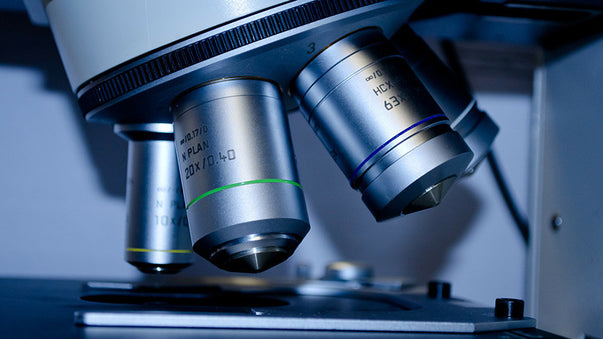In Memory of Hal Finney

Welcome to this new issue of Pulse, your weekly newsletter focused on human enhancement today and tomorrow, brought to you by Thrivous!
Like every year, I recently posted to my friend Hal Finney’s Facebook wall: “Keep resting Hal, there's a lot of work for you when you'll wake up. And Happy Birthday!”
Hal Finney, considered a hero in cryptography (two words: PGP and Bitcoin), human enhancement, and future studies circles, was diagnosed with Amyotrophic Lateral Sclerosis (ALS) in 2009. He died in 2014 and was cryopreserved by the Alcor Life Extension Foundation.
Hal would be happy to see that ALS research is advancing, slowly but steadily. A new ALS drug, already approved in Japan, has been approved by the FDA for use in the US. Hal would be less happy to see that the new drug is very expensive - I’m sure he would want all ALS patients to benefit from research advances. Yes, the pharma companies that develop new drugs and pay to push them through the complex and costly regulatory approval must recover their expenses … there’s nothing new under the sun. But there’s always hope under the stars.
Jesus advised to change and become like little children to enter the kingdom of heaven. Today’s psychologists advise to change learning habits and start learning with the playfulness of little children to stay mentally healthy and combat the cognitive decline that comes with aging. Hal would agree: he continued to learn joyfully and playfully until the end.
Scientists have found that drinking wine protects against neurodegenerative diseases, but you must actually drink the wine: cheating and taking only wine-derived chemicals in pills wouldn’t work. This is certainly good news for wine lovers. It’s also interesting for those who resist a certain health zealotry that is common today. “I think it is also important to not get too obsessed,” said the lead scientist. So feel free to enjoy a glass of wine while reading the news summaries below.
Drinking wine protects against neurodegenerative diseases. Scientists at the Institute of Food Science Research in Madrid have investigated the molecular mechanisms underlying the neuroprotective actions of wine. The open access study, published in Frontiers in Nutrition, shows that wine-derived compounds can protect you against neuronal death and delay the onset of neurodegenerative diseases such as Alzheimer's and Parkinson's. But one must actually drink the wine to unleash its beneficial effects.
Expensive hope for ALS patients. The FDA approved a new drug to treat Amyotrophic Lateral Sclerosis (ALS), Forbes reports. ALS, also known as Lou Gehrig's disease, is a disorder in which patients lose the ability to move, and eventually, to breathe. The new drug, called Radicava (generic name: edaravone), was developed and will be sold by MT Pharma America, a division of Japanese pharmaceutical firm Mitsubishi Tanabe Pharma Corporation. A year's treatment will cost about $145,000, four times the price in Japan.
Health-monitoring smart contact lenses. Scientists at Ulsan National Institute of Science and Technology (UNIST), South Korea, have developed a contact lens, with built-in wireless smart sensors, able to monitor the wearer’s health. The open access study, published in Nature Communications, describes a new smart contact lens sensor that could help monitor biomarkers for intraocular pressure (IOP), diabetes mellitus, and other health conditions. According to the researchers, next-generation smart contact lenses could permit detecting and even treating various human diseases.
A soft artificial retina for less invasive eye implants. A student and researcher at the University of Oxford has developed a synthetic, soft tissue retina that could offer fresh hope to visually impaired people. While all artificial retina prototypes developed so far used rigid, hard materials, the new research results, published in Scientific Reports (open access) show that an artificial retina, able to treat degenerative eye conditions such as retinitis pigmentosa, can be developed with less invasive implants that more closely resemble human body tissues. According to Oxford specialists, the study could revolutionize the bionic implant industry.
A bionic hand that sees and grabs automatically. Biomedical engineers led by a Newcastle University team have built a bionic hand with an integrated camera powered by neural network technology. The hand’s computer vision system scans an object in front of the camera, assesses its shape and size, and triggers a series of movements in the bionic hand to grab the object. In other words, it's a bionic hand that sees and responds automatically. A study conducted with a small number of amputees and published in the Journal of Neural Engineering (open access) shows that the bionic hand allows amputees to reach for objects automatically, without thinking - just like a real hand.
Learn like a child to keep your brain young and healthy. A psychology professor at the University of California, Riverside, is persuaded that continuing to learn the way we did as children is the key to fighting cognitive aging. A new scientific paper published in Human Development redefines healthy cognitive aging as a result of learning strategies and habits that are developed throughout our life. These habits can either encourage or discourage cognitive development. In particular, going from the “broad learning” typical of infants and children to the narrower “specialized learning” typical of most adults can lead to cognitive decline.
More Articles
Don't miss a beat! In our Pulse Newsletter, Thrivous curates the most important news on health science and human enhancement, so you can stay informed without wasting time on hype and trivia. It's part of the free Thrivous newsletter. Subscribe now to receive email about human enhancement, nootropics, and geroprotectors, as well as company news and deals.
Read more articles at Thrivous, the human enhancement company. You can browse recent articles in Thrivous Views. See other Pulse Newsletter articles. Or check out an article below.
-
Cancer Biochemistry and Medical Cannabis
There is no overall central theme in last week’s health and human enhancement press headlines, but many interesting advances scattered ...
-
From Hype to Hope
Welcome to this new issue of Pulse, your weekly newsletter focused on human enhancement today and tomorrow, brought to you ...


